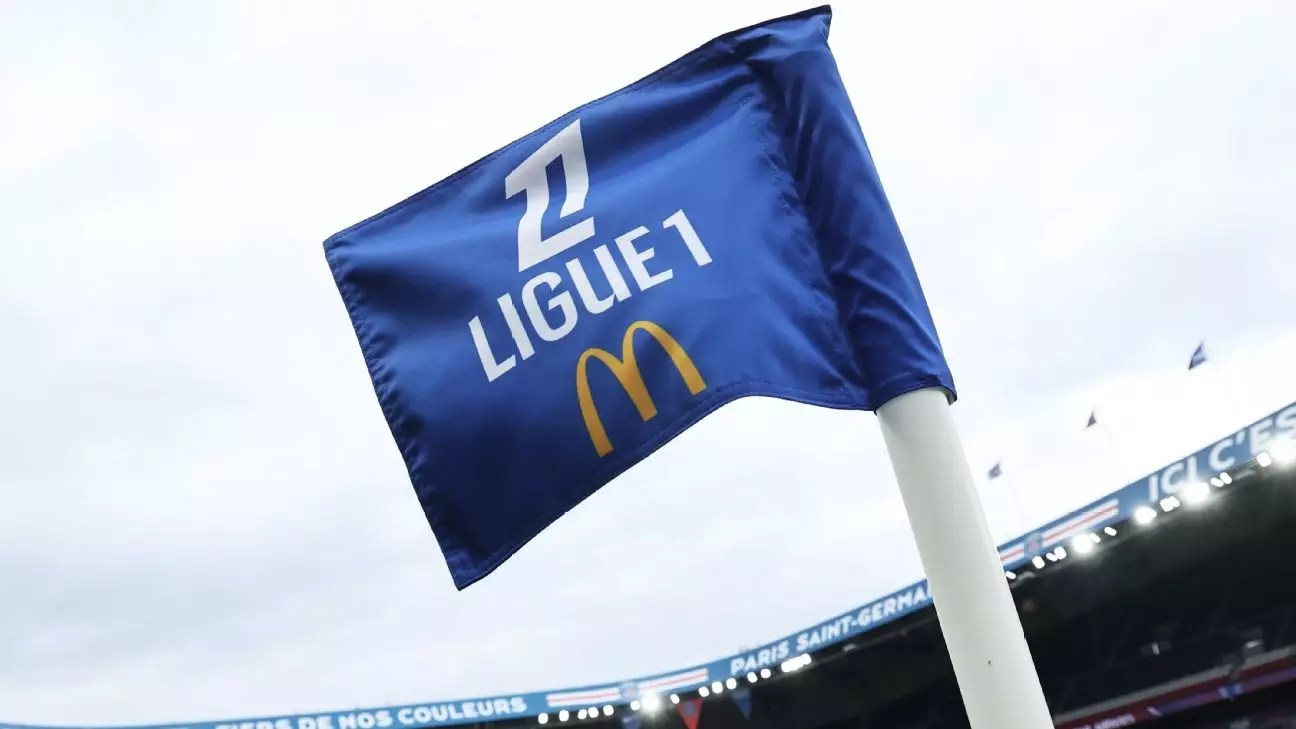In recent developments within French football, significant scrutiny has arisen surrounding a controversial investment deal between the French football league and the private equity firm CVC Capital Partners. French investigators descended upon the offices of both entities this week, undertaking a thorough search as part of an investigation that probes potential corruption and embezzlement linked to this high-stakes investment. The backlash stems from a complaint lodged by a watchdog group, AC! Anticorruption, asserting allegations of misappropriation of public funds amid a climate that many feared could lead the French football league to financial ruin.
The roots of the deal trace back to 2022, when the French league, under the leadership of Vincent Labrune, struck an agreement with CVC that involved a substantial cash injection of €1.5 billion ($1.6 billion) in exchange for a 13% stake in a new commercial subsidiary focused on marketing media rights. This partnership was particularly pivotal in light of the league’s attempt to salvage its finances, following the collapse of a lucrative broadcasting contract thought to be worth over €4 billion with Mediapro, which disintegrated after only four months.
The seeds of the current investigation were sown when a comprehensive exploration into the legitimacy of the investment deal was launched by the French National Financial Prosecutor’s Office. The crux of the inquiry revolves around the nature of the financial restructuring that allowed the creation of CVC’s stake in the subsidiary, as well as concerns over public funds’ appropriate usage throughout the process. This collaboration has been characterized by allegations regarding conflicts of interest and the potential mishandling of taxpayer money during a period when financial accountability within organizations is under intense scrutiny.
The league’s immediate response has been one of transparency. In an official statement, they claimed that all actions taken during the formation of the investment deal were in accordance with established regulations and expressed confidence that the investigation would validate their commitment to fostering the best interests of French football. However, the level of skepticism surrounding the situation remains high, particularly given the backdrop of the rapidly changing financial landscape faced by clubs during the COVID-19 pandemic.
The aftermath of the CVC investment has not only drawn the attention of investigators but has also triggered unrest among several member clubs. Notably, Le Havre has openly contested the financial distribution emanating from the deal and sought legal recourse against the French league. The disparities in fund allocation have raised hard questions regarding the equity and fairness of financial distributions among competing teams.
Under the terms of the agreement, significant sums were designated for prominent clubs, with Paris Saint-Germain receiving the lion’s share of €200 million, further highlighting the growing divide in football finance. Smaller clubs, meanwhile, have expressed grievances, claiming that they have been unfairly deprived of essential funds needed for their operational success. The recent promotion of Le Havre to Ligue 1 exacerbated this quandary, as they found themselves ineligible for key financial support due to previous seasons in lower tiers, leaving them scrambling to alleviate budget crunches caused by systemic financial neglect.
This ongoing investigation and its potential fallout represent a defining moment for French football, a sport that has experienced turbulent shifts in governance and financial management in recent years. The outcome could reshape not only the involvement of private equity firms in football but also influence how financial deals are structured moving forward.
As this investigation unfolds, and with the looming possibility of exposing deeper systemic issues in the management of football finances, stakeholders within the sport must grapple with the tools available for creating a more equitable model for revenue sharing. Furthermore, the delicate balancing act between fostering investment and ensuring ethical governance remains at the forefront of the discourse surrounding the future of French football. The repercussions of the current inquiry will undeniably echo through the corridors of power and influence across the football landscape, both in France and beyond.


Leave a Reply